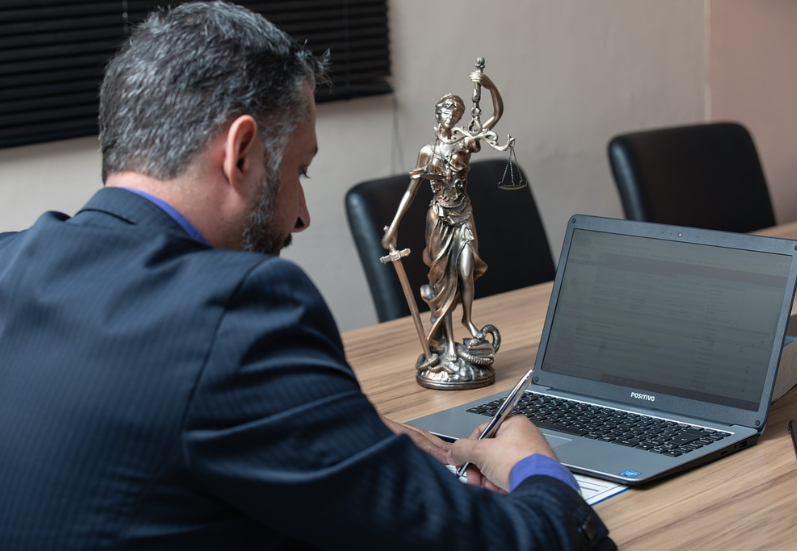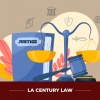
Courtrooms are like chessboards where each move is significant, and tactics are crucial. Picture a contentious trial where a witness boldly testifies, only to have the opposing lawyer bring out a deposition transcript shattering that testimony. Lawyers don’t only use clever arguments.
They also need strong evidence, and deposition transcripts are one of their most potent weapons. These records aren’t mere documents—they are the receipts, the evidence that can win or lose a case.
In a profession where details make or break cases, having access to credible legal records is as crucial as being familiar with the law.
In this article, we will talk at length about deposition transcripts and the vital role played by them in the courtroom.
So, What Are Deposition Transcripts?
Deposition transcripts are complete, official written documentation of out-of-court, sworn witness testimonies. Just like your typical legal transcripts, these records include verbal accounts of anything said while giving testimony. These transcripts also include deposition objections from lawyers.
Moreover, a professional court reporter can easily create deposition transcripts remotely or in person during any proceeding. And not just any proceeding but also from video or audio recordings of such a deposition.
Typically, the certified, final transcript is used in the initial, discovery phase of obtaining evidence. At the same time, it also serves as official documented evidence during trials. Moreover, legal assistants can easily use such transcripts to create a summary of depositions that lawyers can use as a reference while doing a case review.
File Formats Accepted As Deposition Transcripts:
Deposition transcripts can exist in different formats – but which ones are acceptable as per the specific requirements can vary depending on court rules and firm needs.
1. Paper: This is perhaps the most conventional format of written records, useful for referencing in the courtroom and for fast navigation. Moreover, some courts accept solely paper submissions as official evidence.
2. Digital: Digital versions of deposition transcripts are becoming increasingly common. Moreover, a vast majority of lawyers prefer digital copies of transcripts due to their portability and searchability.
3. Litigation-Specific Formats: Some law firms choose to use litigation-specific tools and software such as LiveNote or E-transcripts for litigation support.
4. Video-Linked Formats: Specifically for advanced deposition transcripts, you will see people combining text-based documentation with videos so that users can easily tap on text, before jumping to any corresponding video clips.
The Power Of Deposition Transcripts In Litigation:
Depositions are not pre-trial niceties—they’re tactical goldmines. A carefully documented transcript can reveal contradictions and hyperbole and bind witnesses to testimony they can’t later retract.
Attorneys don’t solely depend on memory. They use deposition transcripts to cross-examine witnesses effectively. And when transcripts fail, attorneys also use recordings from hearings and trials to ensure no vital detail is overlooked.
Whether it’s a slip-up in wording or a change in tone, these records help attorneys sharpen their strategies, ensuring that no one conveniently “forgets” what they previously said.
The Benefits Of Deposition Transcripts:
Deposition transcripts play a vital role in the courtroom. These transcripts are invaluable resources for anyone involved in a case including attorneys during the preparation and review process.
Apart from that, there are several other crucial benefits of detailed, written records of verbal, out-of-court testimonies:
- Offers a permanent and accurate record of important events.
- Expediates the research process legally for any case.
- Creates a neutral and accurate source of information for a comprehensive case strategy.
- Delivers evidence wherever it is needed.
Strengthening Legal Strategies With Deposition Transcripts:
Imagine depositions as a rehearsal for the central performance. Lawyers study transcripts to prepare witnesses, shape foolproof arguments, and pre-empt any conceivable counterstrike.
At trial, a lawyer can pull a transcript during cross-examination and catch a witness contradicting. Suddenly, that rock-solid testimony turns into quicksand. In settlement negotiations, nothing speeds up a resolution, such as presenting deposition evidence that proves a witness is unreliable.
Even closing arguments benefit from transcripts. For instance, picture a lawyer standing confidently and saying, “On this date, the witness testified X under oath.” That’s not only persuasive—it’s bulletproof. Regardless of how convincing a witness may sound in court, a transcript holds them to their own words.
The Benefits Of Clarity And Accessibility:
Courtrooms move fast, and spoken testimony isn’t always crystal clear. People mumble emotions run high, and words get twisted. But with deposition transcripts, every word is documented, eliminating guesswork.
Unlike handwritten notes or vague recollections, a transcript provides an accurate, objective record. This means attorneys can focus on strategy instead of recalling exact statements. Plus, having a searchable document makes referencing past statements effortless—especially in lengthy cases where details blur over time.
In legal battles, clarity is power. A well-documented transcript ensures no argument, contradiction, or confession is lost in the chaos.
What Happens When Depositions Decide The Case?
Some trials don’t even make it to the courtroom—deposition transcripts settle them first.
Take a case where a defendant swears they weren’t at the crime scene. But a deposition from weeks earlier shows them admitting they were. That’s enough to shake up negotiations, forcing an early settlement.
Then there are perjury cases. Picture a witness confidently testifying one thing, only for the opposing counsel to calmly slide over a deposition transcript proving they said the opposite under oath. That’s not just a bad look—it’s potentially criminal.
When words matter this much, there’s no room for “I think I said” or “I don’t recall.” Deposition transcripts capture the truth; sometimes, that’s all a lawyer needs to win.
Deposition Transcripts Are Indispensable:
In the legal arena, precision is everything. One misquote, one misplaced fact, and a whole case can change. That’s why deposition transcripts aren’t only handy—they’re indispensable.
They bring clarity, accountability, and leverage that lawyers can’t afford to ignore.
Whether they’re spotting contradictions, preparing for trial, or negotiating settlements, lawyers who use transcripts as a strategic tool are in control.
Because in court, it’s not merely about arguing well—it’s about demonstrating the truth. And nothing proves it better than a witness’s words, documented in black and white.
Read Also:
- What Is a Debt Settlement Agreement?
- Understanding the Basics of Pre-Settlement Funding
- 5 Reasons Why an Out-of-Court Settlement May Be a Better Option











0 Reply
No comments yet.